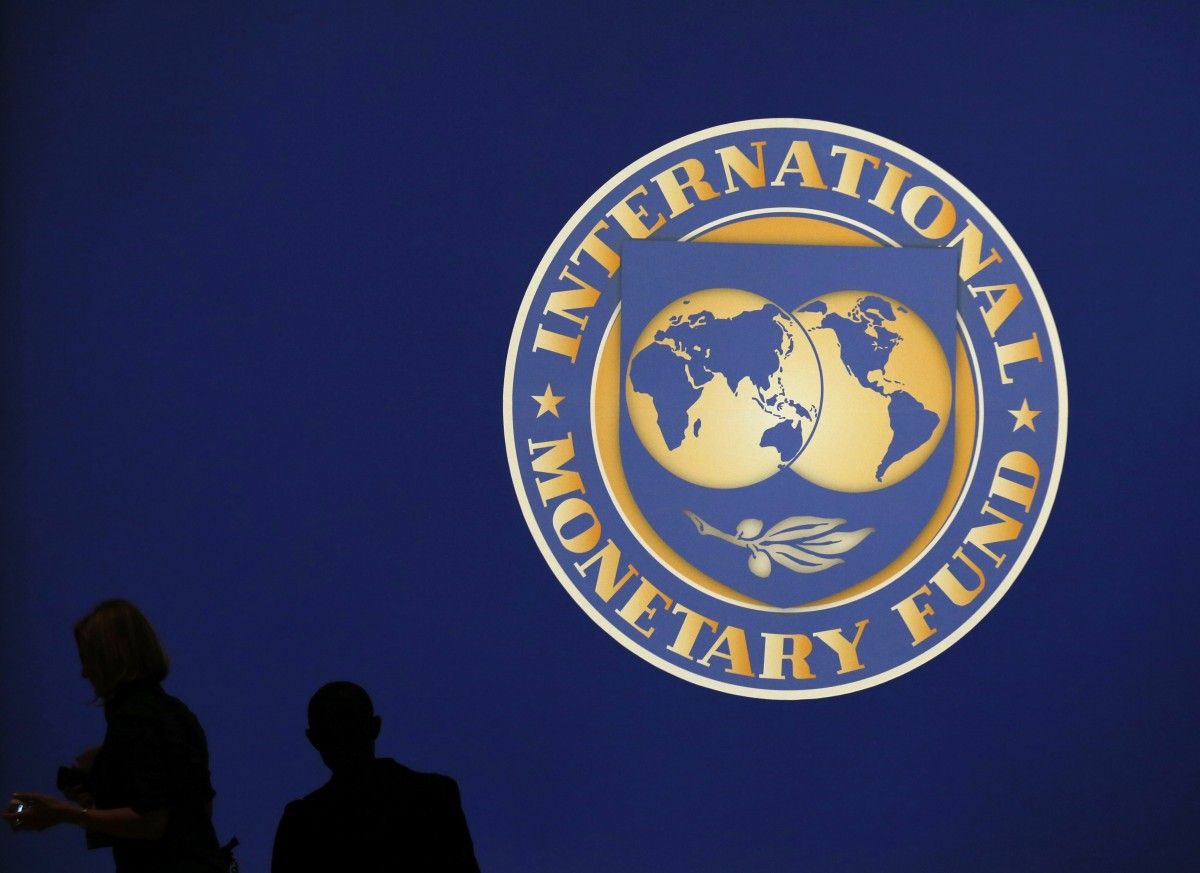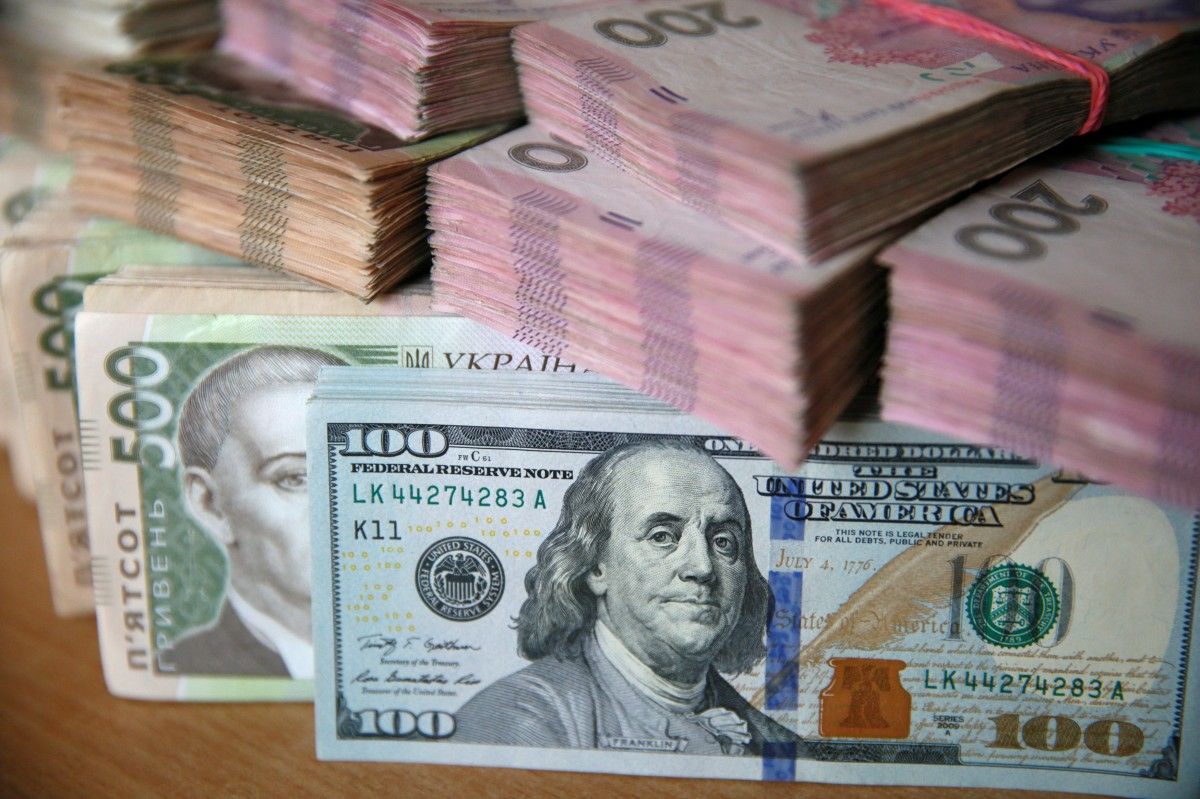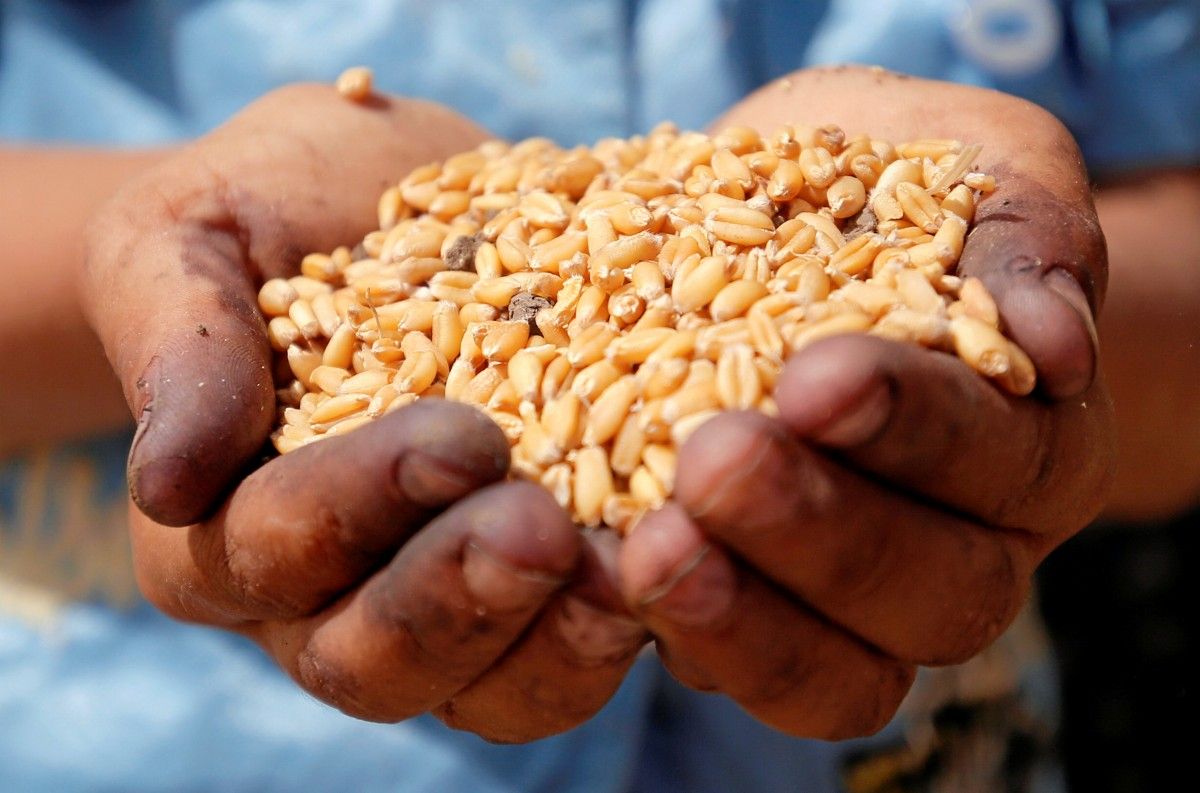
Week’s balance: Budget-2018, IMF audit, and hryvnia losing shape
The Cabinet of Ministers of Ukraine approved and submitted to the Verkhovna Rada a draft budget for 2018, Deputy Managing Director of the IMF David Lipton inspected how Ukraine fulfilled obligations under the program of cooperation with the Fund and appreciated the progress in the stabilization of the Ukrainian economy, while the hryvnia continued its downward trend - these are the main economic news of the outgoing week.
The Cabinet of Ministers met twice this week. The government held its second, unscheduled meeting on Friday to approve the country's key financial document - the budget for the next year.
The budget’s main parameters: GDP growth at 3%, inflation at 7%, budget deficit at 2.4% of GDP.
While presenting the draft budget for 2018, Prime Minister Volodymyr stressed that the forecast of the main macroeconomic indicators remains conservative and may be adjusted over the next year.
The draft approved by the Cabinet also provides for raising the level of the minimum wage from January 1, 2018 to UAH 3,723.
"We see an absolutely normal step of the next raise: plus UAH 500, which is UAH 3,723. That is, an increase by 16.3% compared with the previous year ... Our task is to have people’s incomes growing faster than inflation, than those rising prices," Groysman said.
The Cabinet of Ministers lays down in the draft state budget-2018 a 15% revenue growth compared with 2017 - up to UAH 1.118 trillion. "This is the first budget, which will exceed the figure of UAH 1 trillion," the prime minister said.
The expenditure part of the financial plan will also grow. According to the submitted draft budget, defense funding will increase to UAH 164.9 billion, road construction and repairs - up to UAH 44 billion, the agrarian sector - up to UAH 7.3 billion.
In addition, the government proposes to increase spending on education to UAH 217.5 billion and science - up to UAH 7.9 billion UAH, while healthcare costs will amount to UAH 112.5 billion, which is UAH 11 billion more than last year's figure.
"This financial resource will be enough for the introduction of a new healthcare system," said Groysman.
On Friday, the Cabinet of Ministers submitted the approved draft of the state budget to the Verkhovna Rada for consideration.
IMF audit

This week Deputy Managing Director of the International Monetary Fund David Lipton paid a visit to Ukraine. The main purpose of the arrival of the IMF’s major official was to get familiarized on the ground with Ukraine’s economic situation and see firsthand if the country’s authorities are still focused on carrying out key reforms.
It is also important that Mr Lipton came to Kyiv in the time when the new issue of the World Economic Forecast, which will be released next month, was being prepared.
According to the IMF official, strengthening the world economy opens up great opportunities for Ukraine in case the country implements effective reforms. He noted that the chief creditor assesses positively Ukraine’s progress on this difficult path and, if our country continues to adhere to the set course, then soon the domestic economy will pass into the phase of active growth.
Within the framework of the extended program of lending to the Ukrainian economy, the Extended Fund Facility, Ukraine has received from the IMF four tranches of loan assistance totaling $8.7 billion over the past two years. According to optimistic forecasts of the deputy head of the National Bank, Oleh Churii, Ukraine will before the end of this year get the next tranche of $2 billion, as well as EUR 600 million of macro-financial assistance from the European Commission. However, the representatives of the Fund are not in a hurry to promise anything because Ukraine first needs to do its homework.
To obtain the next tranche, the Ukrainian authorities must carry out a number of structural reforms, beginning with the acceleration of privatization, land reform, and ending with the intensification of the fight against corruption, ensuring the rule of law and protection of property rights. In addition, according to the IMF, Ukraine cannot postpone any longer the launch of a large-scale pension reform.
According to Lipton, if Ukraine stops short of completing the reforms, there is a risk that the state will return to the starting point, without seeing the positive effect of the work already done to stabilize the economy.
The same opinion is shared by President of the European Bank for Reconstruction and Development, Suma Chakrabarti, who during the 14th annual international conference "The Yalta European Strategy" (YES) in Kyiv said that reforms in Ukraine should not depend on the electoral cycle, while combating corruption and improving the business climate should become the basis for the return of investor confidence in Ukraine.
In turn, Prime Minister Volodymyr Groysman said that the Ukrainian government was ready to continue moving in the given direction to strengthen the economy.
"We need to increase the incomes of Ukrainian citizens. The reform of the pension system, the reform of state property management, judicial, and anti-corruption reform are all that Ukraine and Ukrainians today require. Our team is ready to continue to implement the program, set new goals and objectives," the prime minister said.
In the near future, the IMF mission will come to Kyiv to continue the dialogue with the Ukrainian authorities. However, the exact date of the visit has not yet been announced.
Stumbling hryvnia

From the end of August and beginning of September, the trend of the national currency suddenly changed: after a prolonged strengthening, the hryvnia began to lose positions, step by step.
The interbank foreign exchange market is seeing an increased demand for the U.S. currency amid a rather weak offer. Thursday, September 14, was an especially turbulent day for the interbank market. It was the NBU intervention that curbed the pressure of buyers. The central bank had to go out on the market three times on that day to sell currency. As a result, dollar quotes from UAH 26.08 / 26.11 in the morning rose to UAH 26.15 / 26.18 by the end of trade.
There were a lot of big players wishing to buy Ukrainian national currency that day, including UkrSibbank, ING Bank, Raiffeisen Bank Aval, Credit Agricole Bank, Ukrgasbank, and Oschadbank.
According to a number of experts, the hype around the dollar rose right after the bank with foreign capital entered the market, announcing the purchase of about $20 million, which for the Ukrainian market is a remarkable sum. The name of the bank has not yet been specified; however, the experts are convinced that the deal was agreed with the NBU.
In addition, the forex rate is influenced by the behavior of Ukrainian businesses, who due to their uncertainty in the rate stability try to purchase dollars in advance, thereby minimizing their forex risks.
Another reason for the weakening of the national currency is the purchase of the dollar for the repatriation of dividends. According to Deputy Head of the NBU Oleh Churii, from the beginning of 2017, foreign investors withdrew from Ukraine some $1.1 billion, while by the end of the year the figure will grow to $1.4 billion.
However, despite the combination of these factors, the National Bank expects moderate volatility in the hryvnia’s exchange rate this fall. Churii said that, first of all, the cheapening of the national currency was caused by temporary factors, among which is the receipt by businesses of their VAT refunds and the decrease in the volume of currency sales in this regard, which caused the increased demand.
At the same time, the NBU deputy head stressed that soon the Ukrainian national currency should restore its position as the fundamental factors will continue to be favorable, while the traditional autumn factors play a smaller role, since Naftogaz does not buy foreign currency on the market this time, while the Ministry of Finance more evenly reimburses VAT, and the proceeds continue to flow in from exports of this year’s crops.
Protecting farmers

Another important news of the outgoing week was the approval by the Cabinet of a three-year program for the support of Ukrainian farmers. No less than UAH 1 billion will be allocated next year for the program’s implementation.
The issue of the need for additional protection of farmers arose sharply after it became clear that the system of subsidizing agricultural producers proved ineffective. Prime Minister Volodymyr Groysman noted that, according to the state support mechanism, those agrarians who produce more receive more funding from the state budget. So the state continues to allocate funds to support big agricultural producers generating multi-million dollar profits, while it fails to help small farmers who really need financial assistance.
The government plans to change the situation through a new program, designed for 2018-2020. It is expected that its implementation will contribute to the growth of the number of farms and create new jobs in the agriculture.
According to First Deputy Minister of Agrarian Policy Maksym Martyniuk, the funds laid down in the program will primarily be provided to farms engaged in livestock breeding, horticulture, viticulture and processing of agricultural products. Also, financing will be directed to the implementation of the program for more affordable loans for agricultural producers and insurance of farmers.
According to Martyniuk, as a result of the program’s implementation, in three years the number of jobs in farms will grow threefold, the output of livestock will increase 1.5 times, while the areas engaged in organic production expand by 10%.
Meanwhile, this year’s harvesting campaign continues. As of September 15, agrarians harvested 38.2 million tonnes of grain and leguminous crops from an area of 9.9 million hectares with a yield of 38.4 c/ha.
Next week, experts and deputies will discuss key indicators of the government-approved draft state budget for 2018, while the Verkhovna Rada will consider a number of important bills, including pension and judicial reforms, and the State Statistics Service will report on the industrial output in August.
Nadia Burbela

